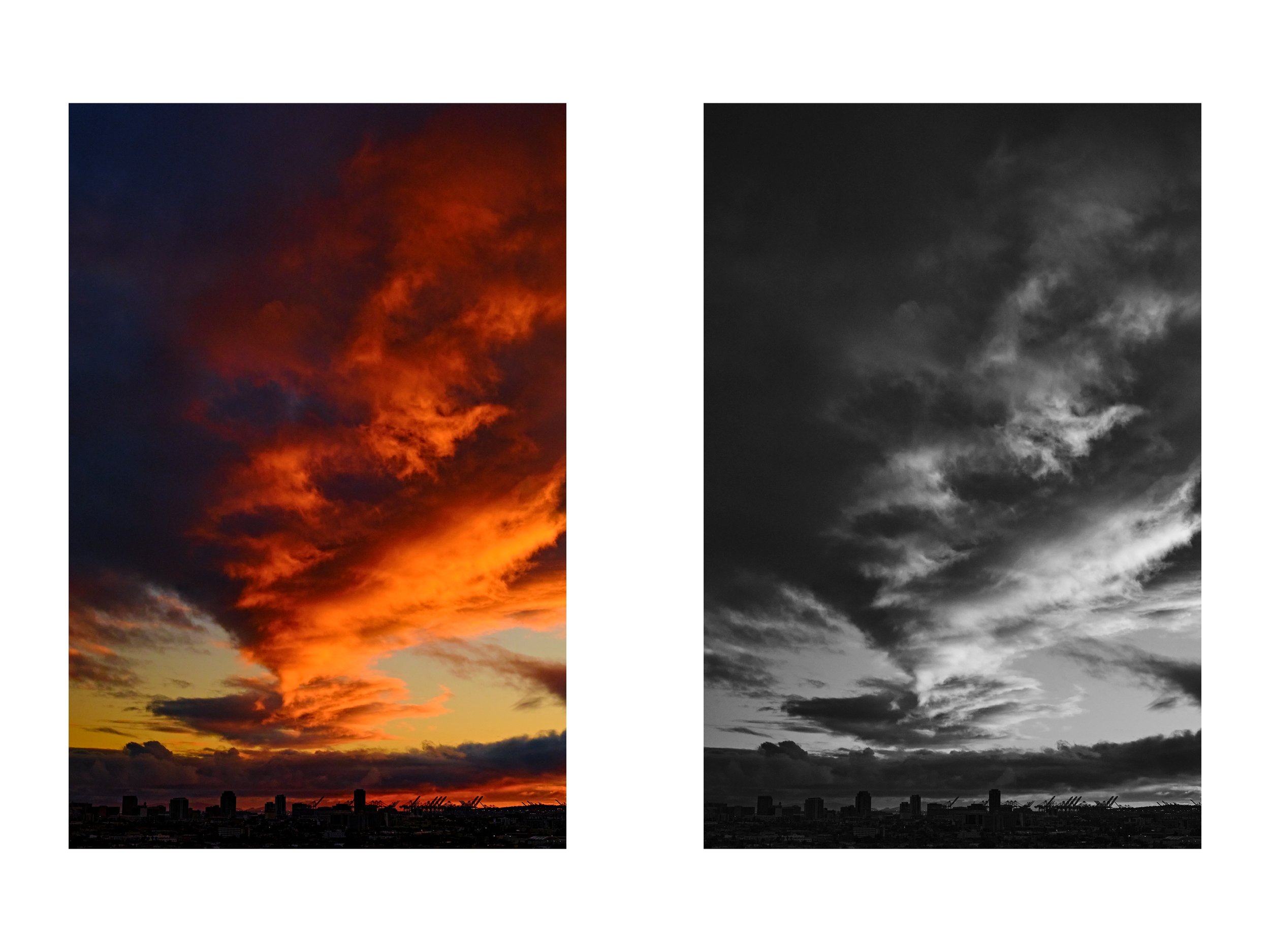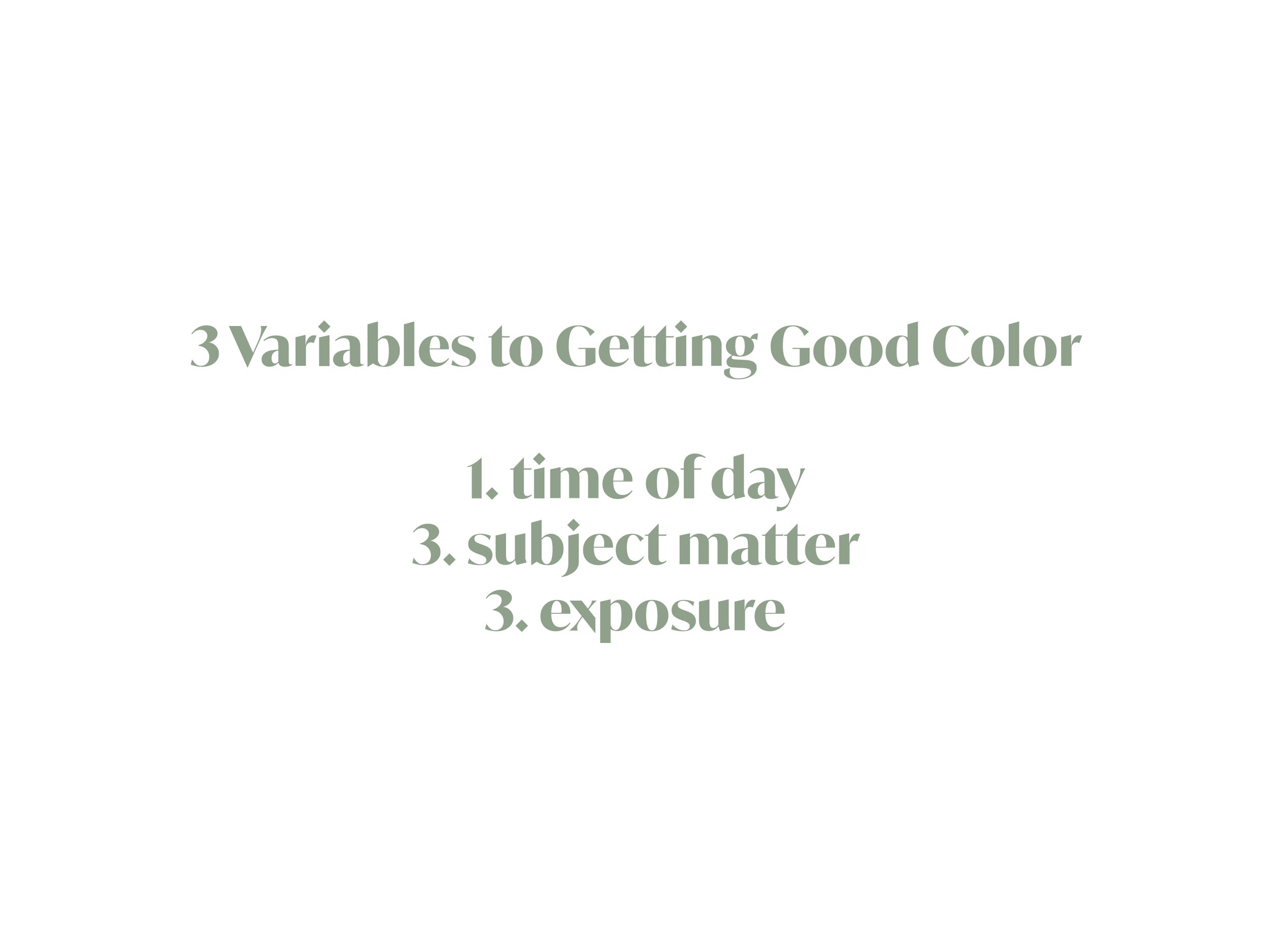Good Color Does NOT Mean Good Photos
Today we’re talking all about color photography. Getting good color wasn’t as important as I once thought. I used to chase color, watch tutorials, and try a bunch of different things to get “good color” because I thought it’s what I needed to get better photos.
And don’t get me wrong, I personally love color and use a lot of vibrant and saturated colors in my own work, but I still think color is overrated.
Everyone talks about color science, color theory, how to edit to get good color, etc, etc as if it’s the end all be all. But I honestly don’t think it matters that much for one simple reason: color is non-quintessential towards “good” photography.
You don’t need color to take a good picture.
And so a large part of why I’m writing this blog is because I believe there’s an over emphasis on color in photography - not because I dislike color. All of this color talk has us (me) focused on the wrong aspects of photography.
Black and White Photos
One of the big reasons why I think color doesn’t actually matter for photography is because of the existence of black and white photos. Black and white is one of those lasting mediums I think is not only easy to understand but a bit of a heirloom for photography. There literally is no color, yet a mono image can leave a long lasting impression on us. This led me to consider: maybe color doesn’t matter that much.
The idea is this: when you remove a variable from the equation and the result (a good photo) is still possible, you’ve proven the variable is unnecessary towards “good photography”.
And I believe that’s what black and white photography represents. I think it’s evidence that pictures don’t need color to be “good” and therefore color is more of an accent than a requirement.
The reason why black and white images work is because what’s holding the frame together is a bit deeper: things like framing, exposure, and composition. If you can do well with those, you can have “good photography”. In many of my own experiences, I’ve taken tons of photos with good color - but they were terrible photos. This is because the other aspects of photography didn’t line up and proved to be more important variables to a good shot.
To Get Good Color: take photos of things with good color
This may sound obvious but it’s one of those things that I had never considered until much later in my photography journey.
Sometimes, the most obvious points evade us.
It used to puzzle me how people got good color. I tried many many things like watching all the tutorials and experimenting with different grades or film simulations. None of it really worked. Until one day I realized that it’s not the output that matters - it’s the input.
It is much easier to achieve good color of the initial photo already has good color.
Therefore what I needed to do was not figure out how to color grade better - it was simply to find things with good color (and expose for them appropriately) and I’ll in turn get a better end result.
Golden hour is a prime example of this. The reason why everyone tells you to shoot at golden hour is because the lighting and colors are that much better. So instead of trying to recreate the feel of golden hour in our editing programs, it’s much easier to just take photos when everything looks nice.
So one of the things that leveled up my use of color was to look for things in the world with good color and takes photos of them. This also allows you to build an eye for color and start to pay attention to the way color works in the world.
Color Science Doesn’t Matter
Lastly I want to touch on the ideas behind color science.
It is of my personal belief that there’s no such thing as “color science”. Now by color science I’m not referring to the way colors pair together or the emotions they cause in our brain. But color science, I mean when you watch a gear review and there a person praising the “color science” of fuji or canon or sony. It’s a technical bs buzz word.
Now although it may be true that there’s a difference in sensors and the way your camera interprets the world’s data - I don’t think it matters all that much. I think you can get good color regardless of the camera you use, be it fuji, canon, sony, or even your iphone. That begs the question: is there actually even a thing as color science? Or does every camera have good color science?
Because you can take a picture with good color with any of these camera brands, “color science” is just a word that overtechnicalizes cameras to draw focus on some sort of pixilation that has so legitimate impact on the actual photos we take.
Since you can get good color no matter the camera, photography is less about the camera and more about the photos you take. As it should be.
Those who actually worry about color science probably have a good reason for it - studio photogs, etc. Chances are it’s in their pay grade or thought process such that these little things can actually play a big impact to their work. But for most of us amateur and hobbyist photographers, it doesn’t matter to the degree we think it does.
It’s never been a passing thought of mine to wish i had the color science of fuji/nikon or w/e when I’m out shooting. I’m more glad that I had a camera on me in the first play.
In conclusion, because color is dope we place a heavier emphasis on getting good color than getting good photos. When in actuality, color is more like the cherry on top or the frosting on the cake. The more important things to focus on for good photography (imo) is good exposure, composition, and framing. Do those three things well enough and your photos will be good, regardless of the color.



